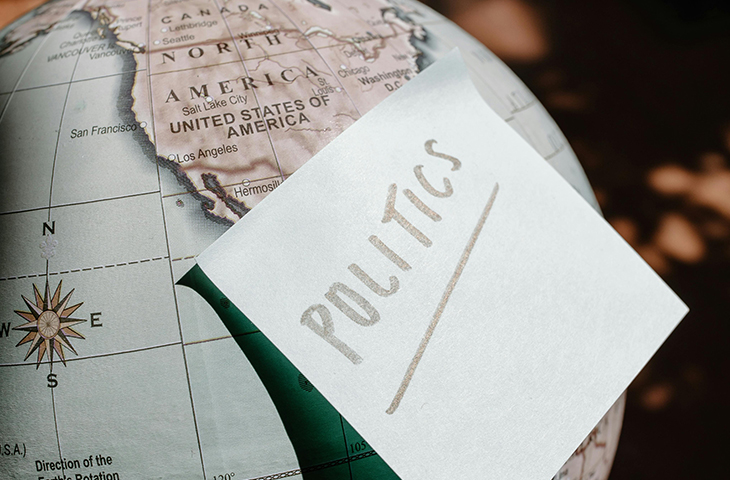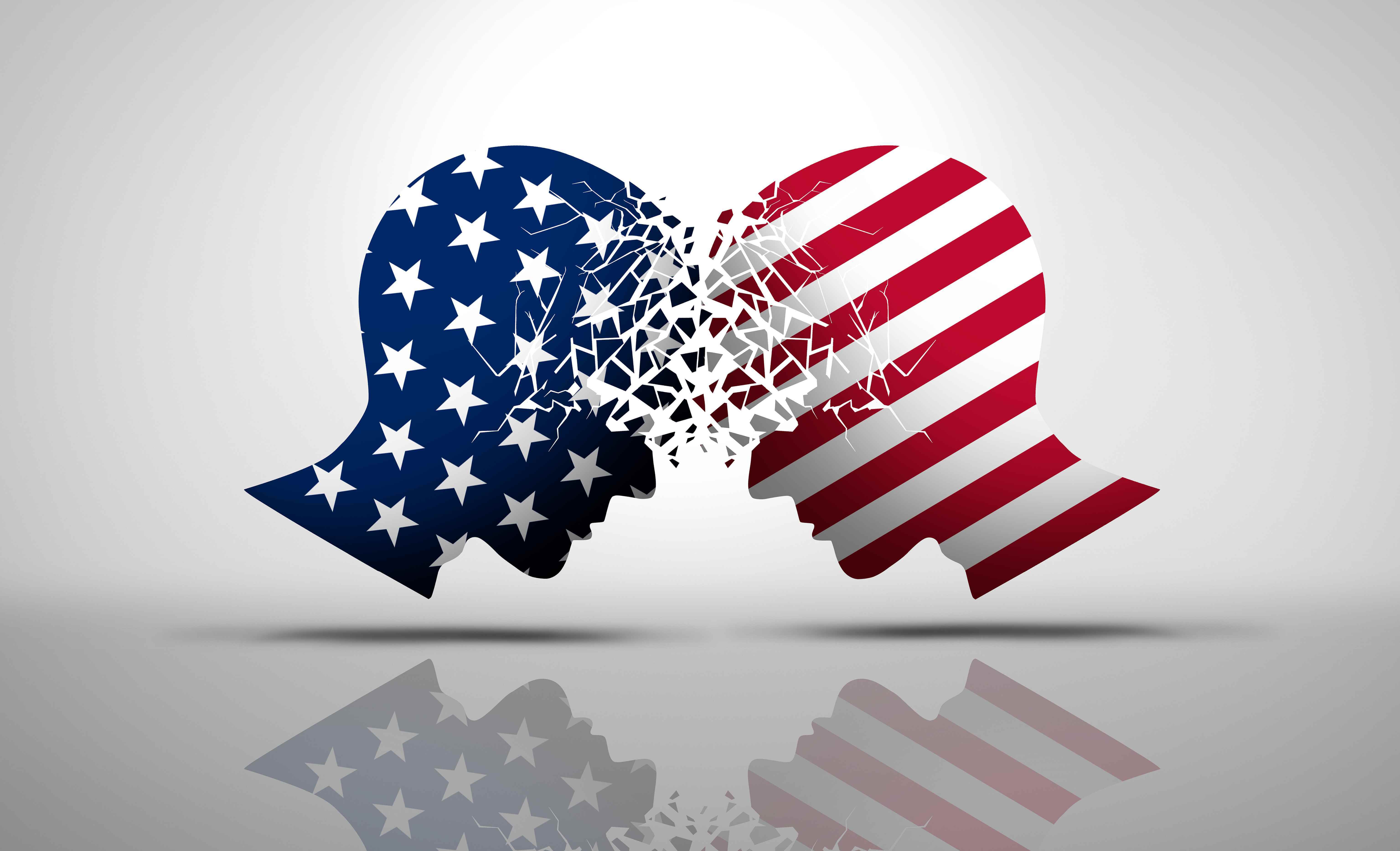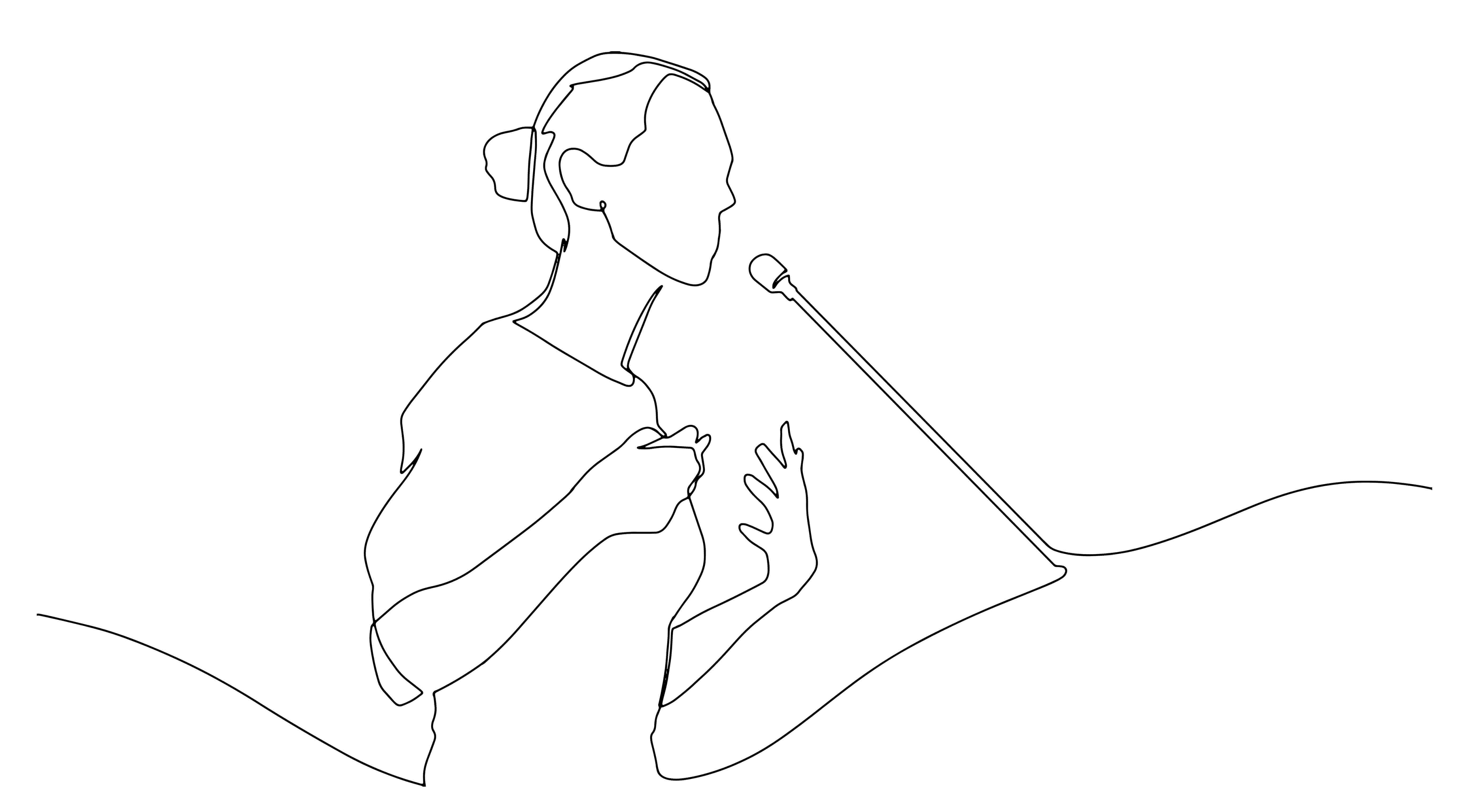‘what Elon Musk Said Is A Bold-faced Lie’

In recent days, the Trump administration has taken steps to shutter the United States Agency for International Development, or USAID, which distributes billions of dollars worldwide annually to help alleviate poverty, treat diseases and respond to famines and natural disasters, as well as promote development and democracy. President Donald Trump has said USAID is run by “lunatic radicals” who promote leftist causes and his appointed efficiency expert, billionaire Elon Musk, has called USAID a “criminal organization” that “needs to die.” Now Secretary of State Marco Rubio says he's the acting director of USAID, and the administration is reportedly trying to fold the agency into the State Department.
But Andrew Natsios, who ran USAID under President George W. Bush and is a lifelong conservative Republican, calls such moves “illegal” and “outrageous.” What Musk and Rubio are doing “is criminal. They can't abolish the aid program without a vote of Congress.”
Moreover, Natsios says, they miss the point that USAID is critical to winning the competition with China and reflects longstanding Republican priorities.
“It's just 1 percent of the federal budget, right?” says Natsios, who also played a leading role in building World Vision, the largest Christian nongovernmental organization in the world with programs in 103 countries. “And it builds goodwill and political influence and economic influence. It promotes American business. It protects us in terms of disease threats around the world. It is in our national interest to run these programs.”
Under Natsios, who now teaches at the Bush School of Government and Public Service at Texas A&M, USAID nearly doubled its budget to $14 billion with a worldwide workforce of 8,100 employees operating in more than 80 countries, including major aid projects in three war zones — Iraq, Afghanistan and Sudan. Natsios was also instrumental in launching one of the most successful programs in USAID history, the President’s Emergency Plan for AIDS Relief or PEPFAR, which has saved some 25 million lives since 2003, and a public-private partnership program entitled the Global Development Alliance. USAID currently manages more than $40 billion annually, as of fiscal year 2023.
This interview has been edited for length and clarity.
What is your response to what’s happened to USAID at the hands of the Trump administration over the last several days?
First, what Elon Musk said is a bold-faced lie. Second, it's the worst idea I could possibly imagine to fold it into State. When Australia folded its aid agency into the secretary of State's office — and they did the same thing in Canada with their Foreign Office — all of the development functions eventually withered away. There are no aid agencies in those countries now.
Why is it a terrible idea? I think the State Department is one of the best diplomatic institutions in the world. I have great respect for our diplomats, but they are not program managers. They don't do assessments, they don't do evaluations of aid programs. They don't understand how you quantify data. They don't have agricultural economists. They don't have public health expertise. The people in State are policy people. And what's going to happen over time is they’re going to hire generalists, not specialists. We hire people with PhDs. We need people of expertise in education or in health or in agricultural development or these different development disciplines.
The other problem is that the State Department's time horizon is six months, a year, two years, and that's it. For USAID it is 10 years, 15 years, 20 years. You do not build institutions in a couple of years. [Former Secretary of State] Madeleine Albright tried to do the same thing [fold USAID into State] in the 1990s. So this is not new.
There's a larger question of whether or not Trump and his supporters really care about development projects succeeding in any of these countries. You pointed out what happened in Canada and Australia, but Trump's response might well be, that proves my point. These countries no longer have development aid programs so why should we?
Because it gives us influence around the world. It's in our national interest. For example, we have a disease reporting system that is in 90 countries. It allows us to monitor what's going on locally. Do you want disease to get to the United States, a new epidemic? The reason that we didn't know about what happened in China in Wuhan [with the Covid-19 pandemic] is because there's no aid mission in China. And I'm not suggesting we have one either. But my point is we have aid missions in which the largest sector program, other than humanitarian assistance, is public health. It is in our interest to know what's happening with the disease presence in these countries — particularly new diseases. There's just been an outbreak of Ebola, for example, in Kampala, Uganda. And how did we find out about it? Through the USAID mission.
The other interesting thing in terms of influence, and the State Department versus USAID, is that unlike the U.S. Foreign Service, three quarters of the people we [at USAID] hire are not Americans. They're from the country that we work in. Many of them go on to become heads of state, ministers of finance, members of parliament, and they have a history with the U.S. I can go through the list. The first woman president of Costa Rica was a Foreign Service national who worked for USAID for 10 years. The first woman vice president of El Salvador was a USAID worker, a 10-year Foreign Service national. I could go through countries all over the world with similar stories. I remember once I said on a country visit, “Anybody here ever think of running for office?” Two guys said, we just got elected to parliament last week running on the platform that we work for USAID. So we have a presence in the world that's very influential, but it has to be separate from the State Department.
And in any case, do we already do what the State Department wants in the field? Yes. The USAID mission director reports to the ambassador, and he or she writes their performance evaluation. So of course they're going to be responsive to the State Department.
Could you specifically respond to what Elon Musk's functionaries at the Department of Government Efficiency (DOGE) have done in terms of actually shutting down USAID?
It's illegal and it's outrageous. They have no right to abolish an agency, a statutory agency in the federal government. Congress appropriated money for us to spend, and we're spending it now, right? So what do you think happens now? I hope someone will sue them, because if this goes to court, they're going to lose. And that's why Marco Rubio said that he's the new head of USAID. That's not what Musk said. Musk said we're abolishing USAID. He didn't say we're merging it into State. That is criminal. They can't abolish the aid program without a vote of Congress.
They also took down all of the plaques [honoring murdered USAID officials]. We had a wall. I had it installed myself. For every USAID officer who's been murdered in the last 70 years, we have a plaque commemorating them. They took the whole thing down. That is a desecration of sacred space. For people who sacrifice themselves for the United States to be treated that way is outrageous.
Can you address the criticism from Trump, who said USAID was “run by a bunch of radical lunatics,” and others on the right who say the agency is serving a leftist agenda? The Project 2025 manifesto had a chapter that described USAID as promoting abortion, climate extremism and gender radicalism, among other things.
Those are baited questions intended for domestic political purposes. In most countries in the developing world [where USAID operates], particularly in the Middle East and Africa, abortion is illegal. There's one or two countries that have legalized it. Muslim and Christian societies and developing countries are very conservative on the abortion issue. To be very frank with you, that's already been decided. This is a domestic attempt by both the left and the right — both sides do it — to rev up the base on this issue.
Number two, in the developing world, in Africa especially, if you run around with the LGBTQ flag and make that a big issue, Africans get very upset. Even [Biden administration USAID Director] Samantha Power said, and I'm quoting her, that we need to find a different way of talking about these issues. In the Middle East and in Africa, pushing a very aggressive gay [rights] agenda is offensive to the church and to the mosque both. It is not helping us in those countries. Now, I don't want any kind of violence against gays, but why is that a USAID issue? That's not a development issue. It’s a human rights issue.
What would you say to the American people who are being told USAID is a worthless organization that doesn't add anything to their lives? The whole theme that's coming out of this administration is that the world is taking advantage of the U.S., that we have to stop spending money on other people and spend it on ourselves.
I’m tired of listening to that argument. It's just 1 percent of the federal budget, right? And it builds goodwill and political influence and economic influence. It promotes American business. It protects us in terms of disease threats around the world. It is in our national interest to run these programs. Also, we don't want a large number of people to starve to death, because it's destabilizing and it's frankly intolerable from an ethical point of view. And the polling data, by the way, shows that the great majority of the American people, when you specify what the program is, they support it.
Another area where USAID has been criticized — not just people with a political agenda like Musk but also some development aid experts — is that it’s said that many of its programs are ineffective. They are in the hands of a few very large government contractors who don’t monitor results or work with the local community enough. Even the agency’s own inspector general concluded in recent years that 43 percent of USAID programs failed to achieve about half of the intended results and yet contractors still got paid in full.
A couple of points here. One, we are so obsessed with accountability that it actually paralyzes the agency so much we're so worried about any money disappearing. There’s an independent nonprofit that judges the quality of management in the federal government. It’s called the Federal Invest in What Works Index and it’s very technical. Guess what agency the federal government ranks second in quality of management and competence? USAID. I wrote an op-ed piece in The Washington Post on this.
Beyond that, there is not one single country in the world that developed as a result of small community action projects [that hand over funds and responsibility directly to local activists], not one. The only country where we flooded the country with community action is Haiti. Do you think Haiti is a success story? Right? I don't think so. [A 2023 U.S. Government Accountabilliy Office report on such programs found that USAID had failed to “fully track data on its local partnerships” in post-earthquake Haiti.] Okay, so, with all due respect, local community action, I think we should do it just to develop civil society, but the notion that we should be spending most of our money on small community projects is utterly ridiculous. And more importantly, we would need 10 times the staff we had now in order to manage very small grants to a lot of groups.
So do we need the large contracts? Yes, we do. As I mentioned, we did a worldwide system for collecting data on diseases, and it's in 90 different countries. Even big NGOs couldn't have done this. Only big contractors can do it.
Are there any programs you think should be cut from USAID?
Yes, I think the family planning budget is too big. I think it should not be abolished but it should be shut down in Asia, because the Asian countries have been running this on their own for 50 years. I’d take half of that money and put it in Africa. And the notion that USAID assistance is going to have any impact on carbon emissions is a real stretch. What we should be spending our money on is adaptation [to climate change]. We need to be developing seed rice that can sustain higher temperatures and still produce. We’re developing it now but it’s too slow.
Do you think that some of the reform programs that were put in place at USAID in Trump’s first term could work — for example “journey towards self-reliance” embraced by Trump’s former USAID administrator Mark Green? The idea was that foreign aid should have the measurable goal of building self-reliance in partner nations as soon as possible, so the U.S. can get out.
Well, I have been very critical of that. We closed the aid mission in Panama, and the Chinese moved in, right? Some [critics] say, if a country is middle-income, we shouldn't be providing any money. That's baloney. We are in great power competition right now, and if a country's got serious social problems — and Panama does — just because their income has gone up, that doesn't mean the problems have been dealt with. There are more poor people in India than there are in sub-Saharan Africa. I think the notion that we should “graduate countries” [and wean them from U.S. aid] made sense in the post-Cold War world. It does not make any sense right now in terms of competition [with China]. We need to focus on the geography of our aid programs, where our missions are and whether they're critically important to the national interest of the United States. We should always have a mission in Egypt. We should always have a mission in Panama. We should always have a mission in Morocco, because of the Straits of Gibraltar, these are critical transportation [routes], and they affect global food security, because the global food system relies on these choke points in order to deliver food. So I don't think we should be graduating countries unless they become as rich as South Korea or Taiwan, which we once had massive aid programs for but we can't justify any longer.
Are there any lessons to be drawn on what works and what doesn't for USAID overall?
I can tell you that you need at least 15 to 20 years to build institutions that are sustainable. You can't do it overnight. Two, you can't have programs turned on and off. And both administrations did this. The Biden people would stop something they didn't like for policy reasons. Then they started again, and then they stopped it again. You can't run a program that way. That's the first lesson. The second lesson is that you have to have local leadership. If there's no local leadership, these programs don't work that well.


